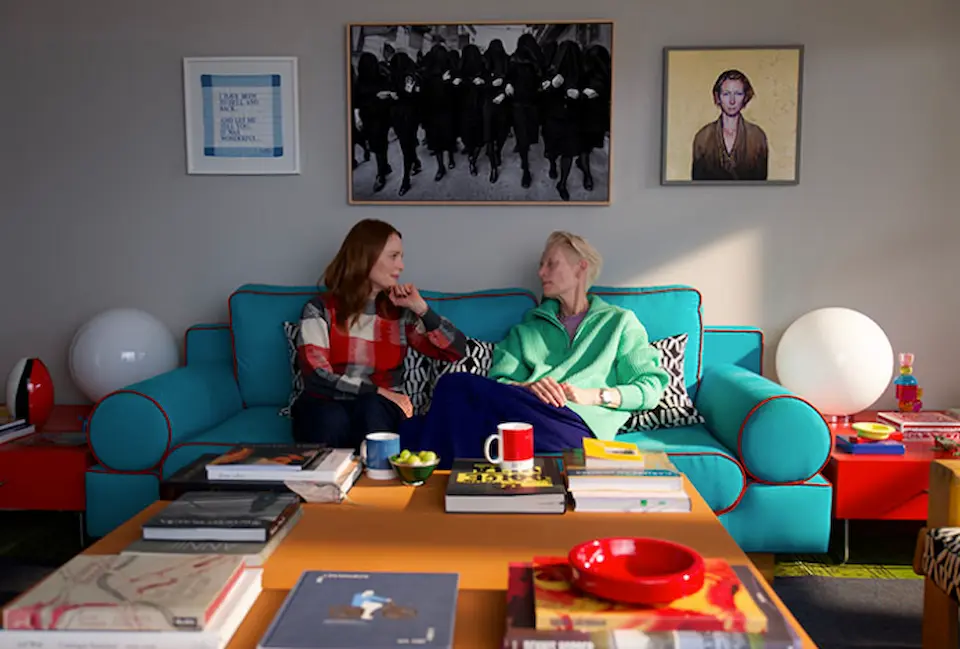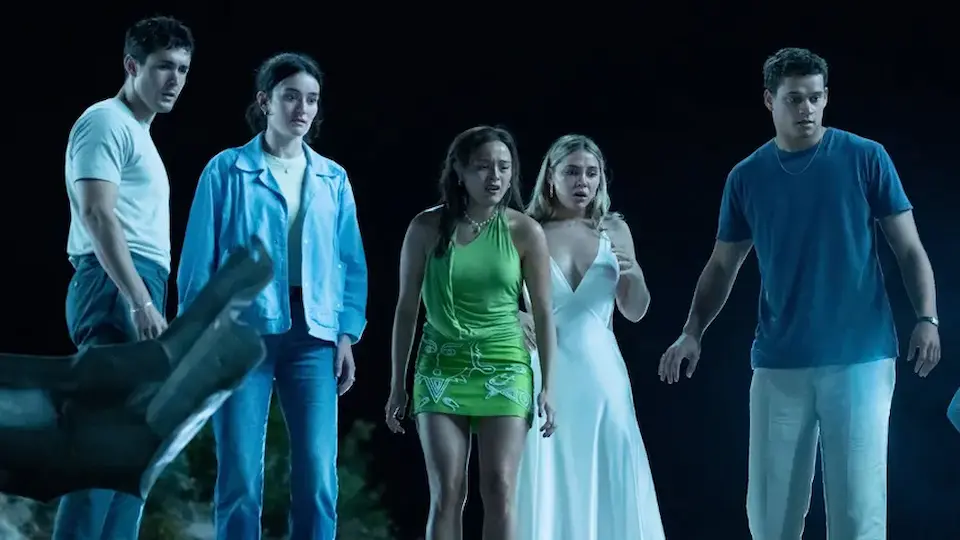“We Live in Time”: A Typical Sad Film
Andrew Garfield and Florence Pugh play the main couple in this romantic-drama directed by John Crowley.
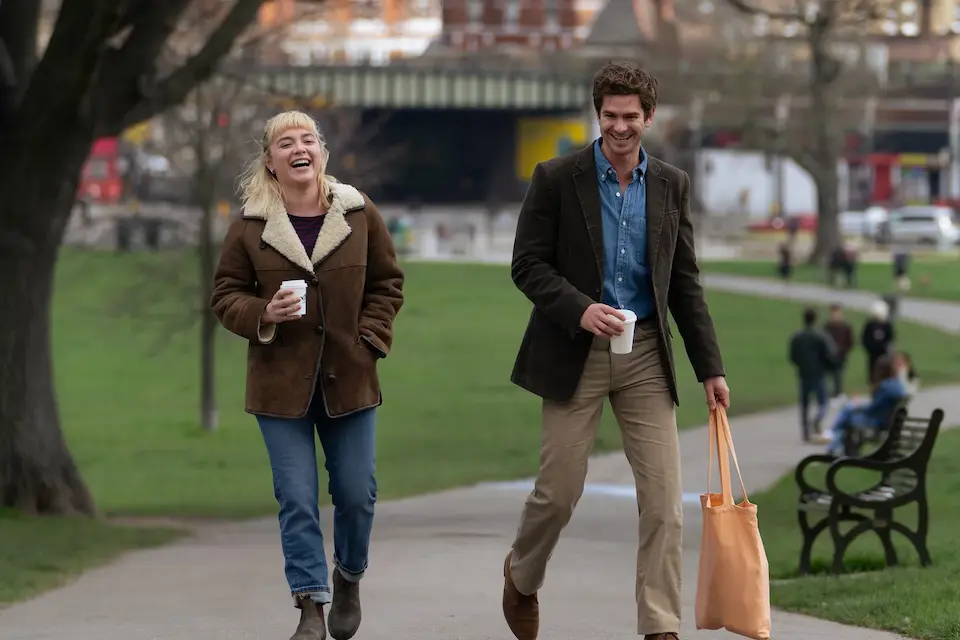
Summary
The film follows the life and the struggles of Almut and Tobias, from the couple’s first meeting through their journey to become parents. Everything changes for the small family when Almut’s health begins to decline.
A Tired Structure
I was supposed to watch this film and write about it over a month ago, but I’ve had a lot of catching up to do in terms of movies before the year is over. This particular project was not at the top of my list.
Right off the bat, We Live in Time suffers from one of the most annoying storytelling resources: the non-linear narration. I firmly believe that this is something that can be used creatively, but in most recent cases, it is done for no reason. It’s not original, it’s not interesting, and far from making the film better, it makes it hard to follow.
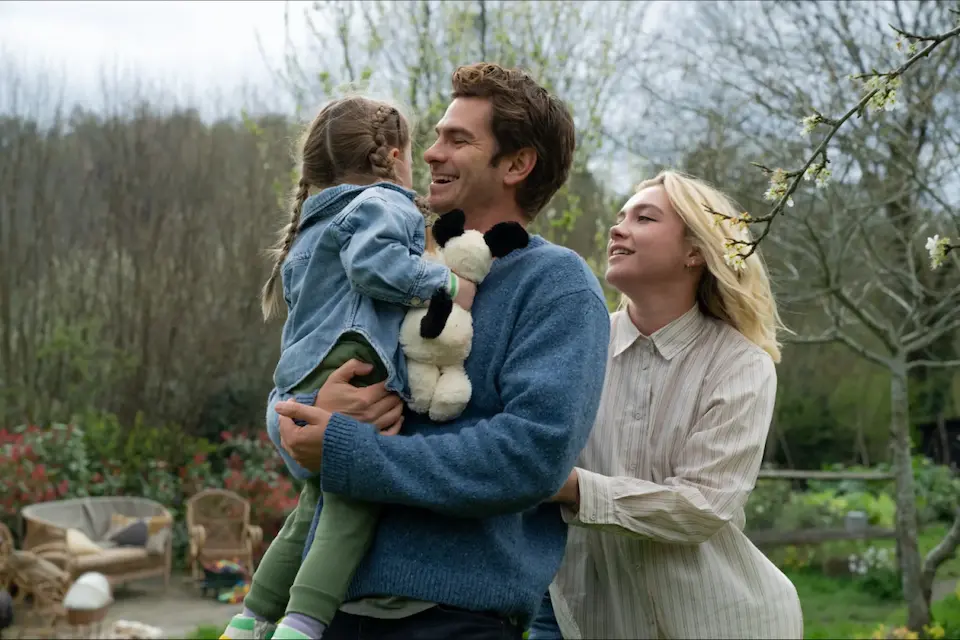
How can I understand or connect with two people and put myself in their shoes if I can’t even distinguish in which part of the story I am? How much time has passed between scenes? Days, months, years? Characters change their minds from one scene to the next, and I can’t even figure out whether there was a time jump or if the script is simply bad.
Talking About Death Does Not Make you Deep
One of the things I criticized about It Ends With Us back in August was its manipulative nature. I don’t like movies who hang onto serious topics to sell the product, despite presenting a surface level understanding of it.
I’m not trying to say We Live in Time is an equivalent to that. In all honesty, I did not absolutely dislike the film, and I believe it had some good qualities. Being an independent project, it also has the advantage of feeling more personal and humane than a big production would.
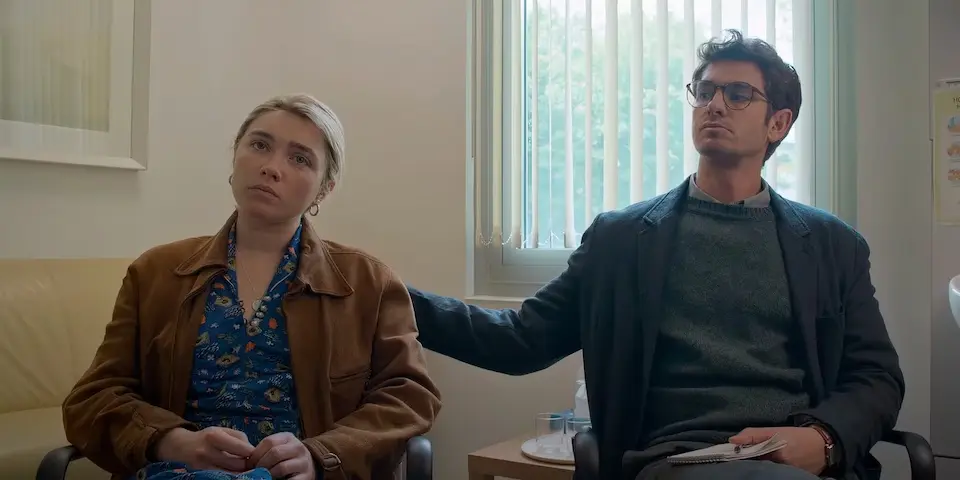
But I can’t help feeling that the story is relying more on its marketing as “sad movie”, than on an effective exploration on the subject of illness and death. His Three Daughters, another independent project with a similar topic, achieves a much more convincing result by a heavy focus on the characters. Here, while the intention is the same, I don’t believe the protagonists are quite as relatable and charming as the movie thinks they are. You take away the tragic situation they are in, and those two are not all that nice.
Characters and Performances
While the characters are not the most charismatic people, they’re also not the worst. Of course, they follow certain trends: Almut, the female protagonist, is an incredibly successful woman. She is excellent at everything and has a strong personality. On the other hand, Tobias is very soft and caring. He has gone through a lot of emotional turmoil due to a difficult divorce, so he is emotionally fragile. His biggest dream in life is to have a family.
However, they saved the situation with good casting. Andrew Garfield and Florence Pugh are compromised with their roles, and they have great chemistry. They are the ones keeping the project together. Their performances are so good that, even though I was not invested in the story, they made me shed some tears. The pair has a couple of sweet moments, I give them that.
The Talk About Kids
What is wrong with asking your partner if they want to have kids? According to Almut, it’s quite disrespectful. She makes a huge deal out of it, and some scenes later, Tobias has to apologize for bringing it up.
I fail to understand what is wrong with that. It seems perfectly normal to ask such an important question, especially if you’re considering the relationship has potential to become serious. Kids can be a dealbreaker. Tobias mentioned his wish to become a father and how the disagreement with his ex-wife on that point ended in a divorce. The man is in his forties, he can’t afford to get emotionally invested in a relationship that would never become what he is looking for.
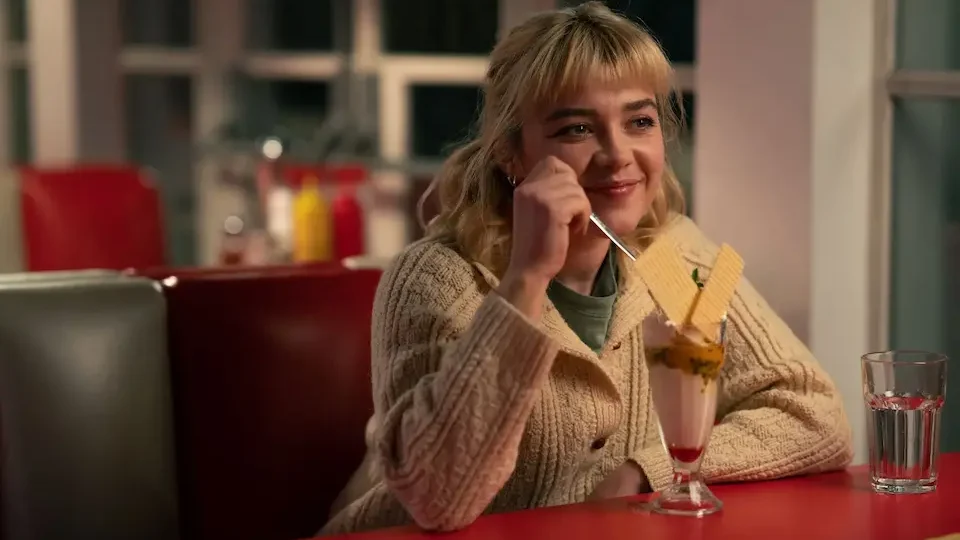
Almut is even offended that Tobias is pressing on that, for she is “only in her mid-thirties”, implying that expecting women to have kids young is archaic and sexist. And of course, she is not obligated to have kids if she doesn’t want to, but the honest thing would be to make it clear that she is not interested, so Tobias can find someone else. And I know feminists are at war with biology, but women are not fertile all of their lives. If you’re thirty-four, and you want to have kids, you should be giving the topic some serious consideration.
It all seems very nonsensical to me, for the film ends up being more about the characters’ journey to parenthood than about Almut’s illness. This is where the non-linear narration bothered me the most, because it makes Almut’s actions appear erratic: one scene she is revolted by the thought of getting pregnant, and the next she is considering risking her life to have a child.
By that point of the movie, instead of being emotional and charmed with the love story, I was frustrated with everything and everyone. I don’t know if writers make their characters unlikable on purpose, or if they genuinely believe they are wonderful.
Critical Reception and Box Office Numbers
We Live in Time grossed $31.461.723 during its theater run, with $24.690.031 out of that total corresponding to the domestic box office. Whether it could be considered a success is unclear, as the production budget remains undisclosed. Provided it was around $10.000.000, it might at least recover the investment. Otherwise, we’re speaking of a loss, and that without considering the marketing campaign.
It’s not a bad film, especially by 2024 standards, and it has great performances, but there’s nothing about it that makes you want to revisit the story. Good enough, but nothing to write home about.

